

Business
I will help you introduce Gotoku Management into your company and drive innovation in your business strategy and leadership!
What is
"Gotoku Management"?
Gotoku refers to the five virtues based on the philosophy of
Confucianism from ancient China, which are essential qualities that
humans should embody. Gotoku Management is a crucial business philosophy
that uses these five virtues to refine the way of being of individuals
within the organization, leading enhanced leadership and improved
organizational management.
By practicing Gotoku Management, organizations can drive success and foster
sustainable growth on both an individual and societal level.

The Five Virtues
that make up Gotoku-
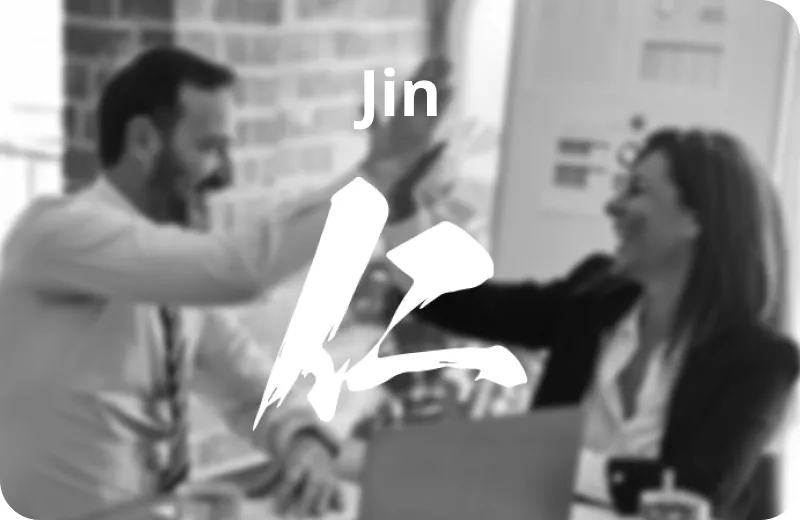 01 仁 ーJINー
01 仁 ーJINーCherish and Protect Others
Jin embodies the practice of cherishing and protecting the dignity of the person in front of you without judging them by who they are, what they do or have. It is about offering your company's resources first to clients, employees and partners without seeking anything, such as sales, profit or stock price, in return. This approach creates meaningful, long-lasting relationships and fosters mutual respect.
-
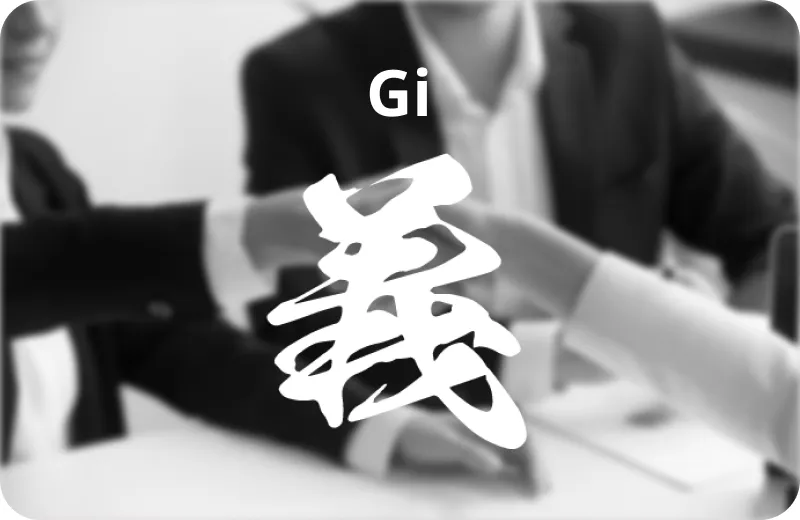 02 義 ーGIー
02 義 ーGIーUnderstand Duty and Uphold Integrity
Gi refers to understanding duty, and living with integrity and honesty. Be fully committed to what you have been given now, and give it your all. Keep promises with yourself and others. For example, if you have made an agreement with a business partner, it is wrong to break that agreement just because a better offer comes along. Do not act in a shady way. By honoring your commitments and adhering to rules, you build trust with clients and partners. This integrity not only strengthens relationships but also establishes your reputation as someone who can be relied upon, ensuring long-term success.
-
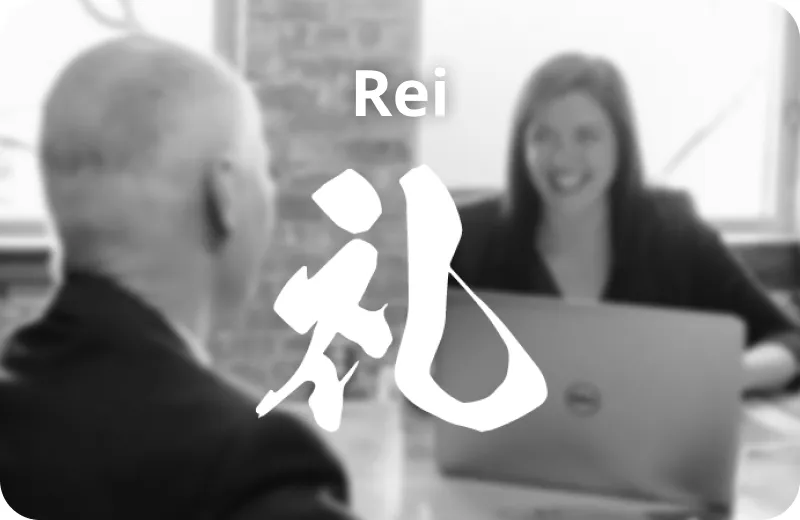 03 礼 ーREIー
03 礼 ーREIーUnderstand the Proper Order and Observe Etiquette
Rei means speaking and acting with grace all the time. Always observe politeness such as proper order between people and social etiquette. Be humble and treat people equally and respectfully. Share your true feelings with others. Ensure that your behavior and words do not change depending on the situation. In all transactions and negotiations, it is essential to respond with respect regardless of position or circumstances. This consistency in attitude and language helps build a cohesive corporate culture and strengthens trust. You can also establish long-term collaborative relationships with clients and partners.
Rei means speaking and acting with grace all the time. Always observe politeness such as proper order between people and social etiquette. Be humble and treat people equally and respectfully. Share your true feelings with others. -
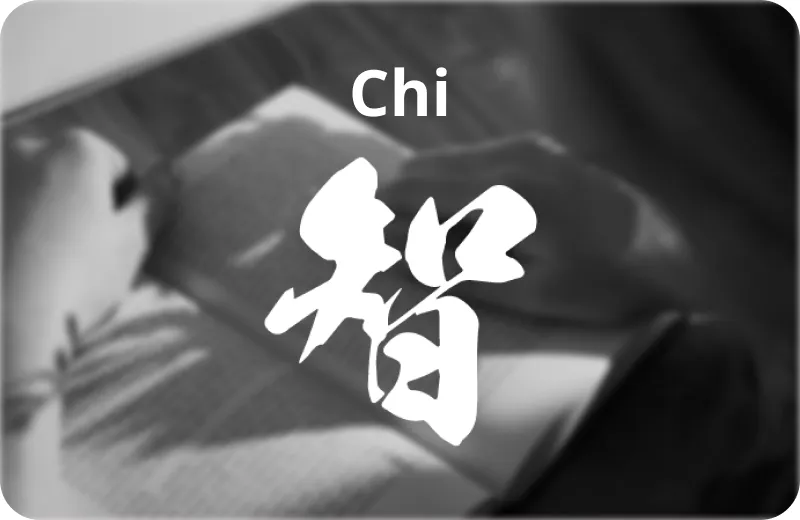 04 智 ーCHIー
04 智 ーCHIーExplore the Essence of Things
Chi is about being the first one to learn proactively and continuously from all people and experiences. Explore the essence of things and the deeper truths. For a company to maintain its competitive edge, it must adapt to changes in the market and integrate new knowledge. Ongoing learning and personal growth drive the improvement of leadership and foster innovation, supporting the evolution of the entire organization. By embracing a culture of learning, businesses can stay relevant and thrive in an ever-changing environment. Embody what you learn to navigate your company and the world.
Chi is about being the first one to learn proactively and continuously from all people and experiences. Explore the essence of things and the deeper truths. Embody what you learn to navigate the world.
Embody what you learn to navigate your company and the world. -
 05 信 ーSHINー
05 信 ーSHINーHave the Charisma to Attract Others
Shin is about enhancing the virtues of benevolence, righteousness, courtesy, and wisdom. And as a result, a trust is build and magnetic charm draws people in. When each employee hold this quality, a company continuously improve in a manner akin to an endless spiral staircase. A company attracts a whole new level of profit, employees, customers, partners, love and business opportunities with its inherent charisma in due course, which leads to the growth of the company, full of abundance mentally and physically.
which allows a company to continuously improve in a manner akin to an endless spiral staircase. By building trust, a company not only gains the trust of others but also attracts employees, customers, and partners with its inherent charisma. Relationships based on trust foster the growth of the company and open up new business opportunities.
As more companies adopt Gotoku management, the world will be closer to the one filled with compassion.
History
Used as the foundation for a credit transaction system
The philosophy of Gotoku was proposed by the ancient Chinese philosopher Confucius and developed as the fundamental value system of Confucianism. The Five Virtues have long served as a guideline for how people should govern society, the state, and organizations. For instance, in ancient China, these virtues had a significant impact on politics and social systems and became deeply rooted in the Bushido (the Way of the Samurai) and Japanese spiritual culture. During the Edo period, Confucian scholars spread the teachings of the Five Virtues as the foundation of human education, not only for the samurai but also for commoners‘ moral education.
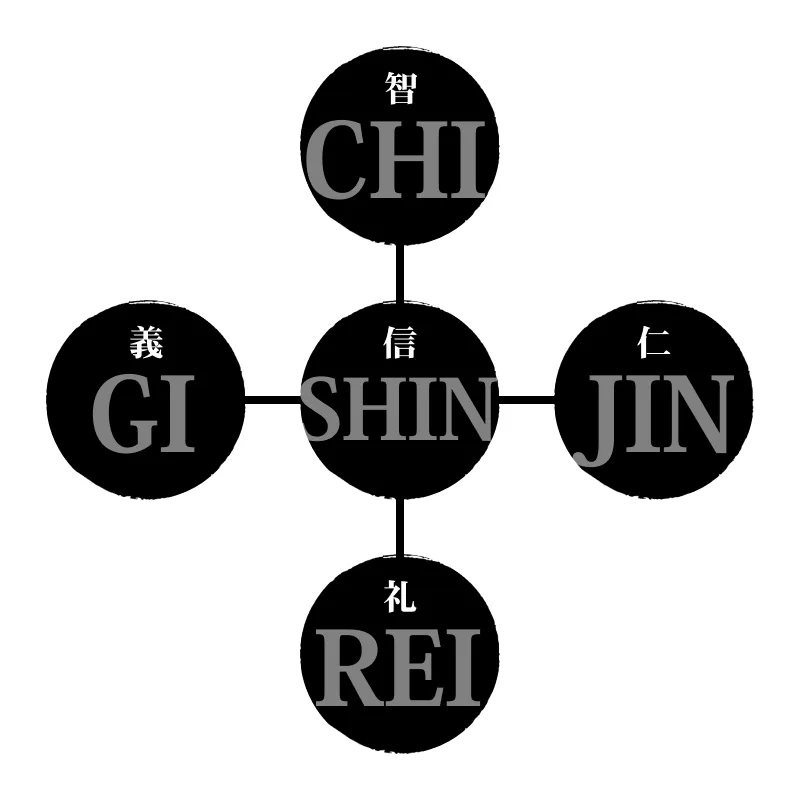
In 1820, Ninomiya Sontoku, a Japanese economic thinker from the Edo period, established a system of credit transactions based on the teachings of the Five Virtues, called the “Gojōkō“ (Five Principles Lecture). The system was built on the following principles:
- Benevolence (仁): The wealthy offer money to those in need.
- Righteousness (義): The borrower keeps their promises and repays the debt properly.
- Courtesy (礼): Gratitude is shown for the assistance received.
- Wisdom (智): Understanding how to generate surplus funds and repay borrowed money quickly.
- Trust (信): Building a trust-based relationship, leading to mutual benefit.
This system illustrated a new form of business transaction in economic activities, based on morality and trust, and contributed to the development of financial systems that followed.
Gotoku were also practiced by the entrepreneur often called the “Father of Modern Japanese Economy“.
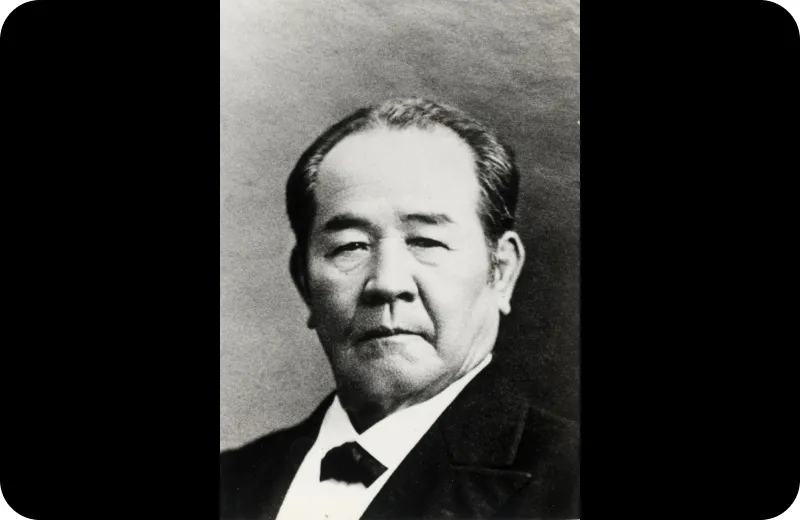
出典:埼玉県深谷市所蔵
One of the individuals who practiced the Gotoku was Eiichi Shibusawa, a businessman who was active from the late Edo period to the early Showa period and is often referred to as the “Father of Japanese Capitalism.“
Shibusawa introduced the system of joint-stock companies (Kabushiki Kaisha) to Japan and advocated the theory of “the unity of morality and economics,“ stating that neither morality nor economics should be lacking. He believed that focusing solely on making money was not enough and that by acting in a morally correct manner, sustainable businesses and societies could be built.
Furthermore, he founded Japan’s first bank and was involved in around 500 social and public projects.

He was an important figure who was chosen to be featured on the new ¥10,000 bill issued in Japan in 2024. In his work “The Analects and the Abacus“, he emphasized the importance of moral values in economic activities.
By practicing the Gotoku of Benevolence (仁), Righteousness (義), Courtesy (礼), Wisdom (智), and Trust (信), he believed that trust and ethics in business would be established, ultimately leading to success. He was convinced that by applying the Five Virtues, both businesses and society as a whole could operate morally correctly, fostering sustainable economic growth.
His business philosophy had a significant impact on Japanese society and businesses at the time, and his ideas continue to be respected to this day.
benefit
-
1
Building Relationships Based on Trust
Gotoku teaches the importance of compassion, sincerity, and trust toward others. By practicing these virtues, you can build strong, trust-based relationships in both business and personal connections. As a result, long-term cooperation and mutual support will emerge in all relationships, including with customers, team members, and partnerships.

-
2
Acquiring Ethical Values Necessary for Leadership
Gotoku teaches the importance of taking moral and ethical actions, as well as showing respect for others. By practicing these principles, leaders and businesspeople can make ethically sound decisions in various situations and demonstrate consistent leadership. This becomes a key factor in enhancing an organization's credibility and maintaining strong relationships with stakeholders.

-
3
Promoting Continuous Learning and Self-Growth
The teachings of Gotoku emphasize the importance of continuous learning and growth. By practicing these principles, one constantly strives for self-improvement and develops the ability to adapt flexibly to market changes and new challenges. Through ongoing learning, leadership skills are refined, and the competitive edge necessary to succeed in a constantly changing business environment is maintained.

Through Gotoku Management,
You Can Achieve These Results!
-

Improved Employee Engagement
-

Increased Customer Loyalty
-

Enhanced Corporate Brand and Social Trust
-

Improved Business Performance
-

Reduced Employee Turnover
-

Stronger Organizational Power
service
-
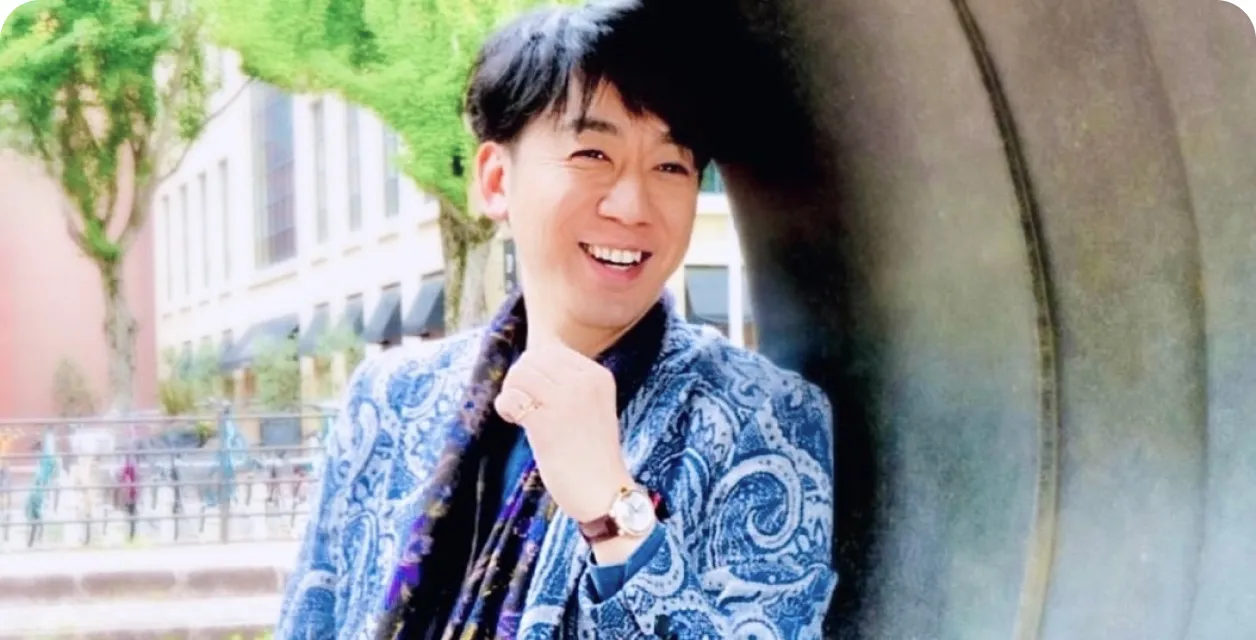
Consulting
-
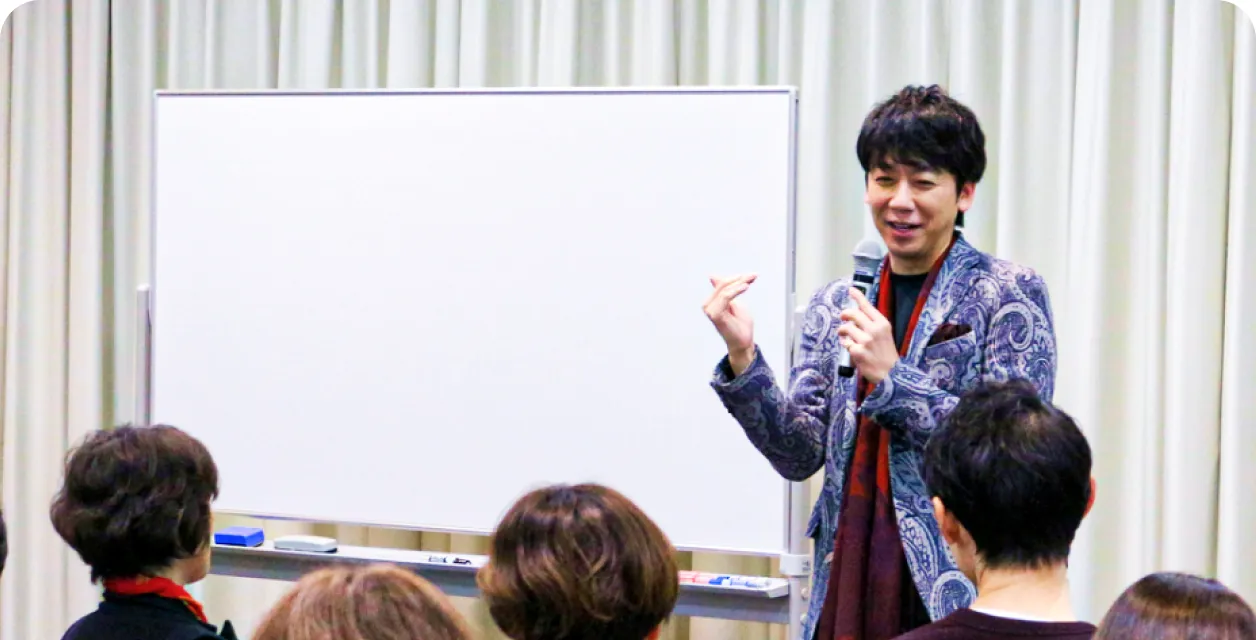
Seminars & Lectures
Results
Through our program, companies that have practiced Gotoku
have achieved improved employee engagement and enhanced
business performance.
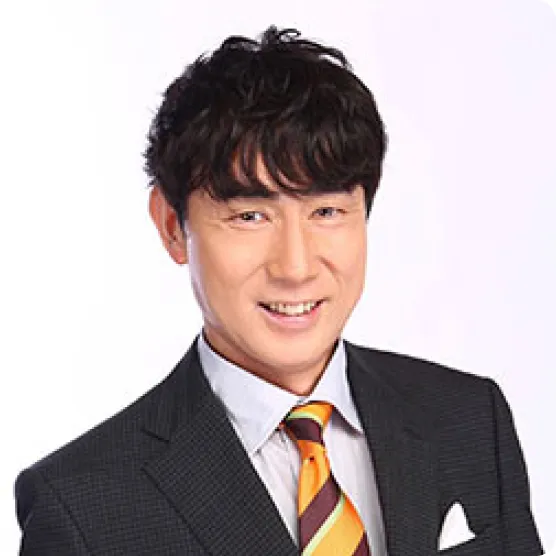
Noritsugu Yonezawa
President and CEO of Serendipity Inc.Management Consultant
I realized that I was lacking the ability to truly empathize with the feelings of the person in front of me and to wholeheartedly serve them.
Until now, I had been looking at my work through the lens of whether it would be profitable or not. However, under Mr. Namekawa’s guidance, I learned the importance of dedicating the same energy to serving the person in front of me, whether the job is worth 1 yen or 100 million yen.
By studying the 2,500-year-old structured discipline under Mr. Namekawa and practicing it for six months, I was able to build stronger bonds with clients and deepen my own humanity.
As a result, business metrics improved,
and I successfully achieved business expansion.
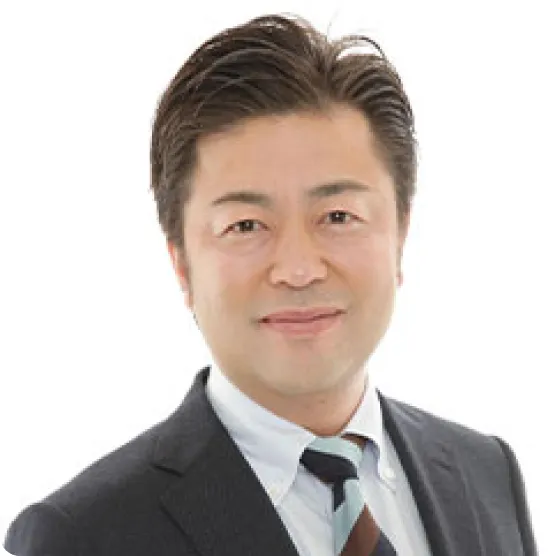
Hiroyuki Fukano
Representative Director of the General Incorporated Association Glocal Solutions Japan
I often found myself questioning my previous way of being and doing things.
Despite managing my company with great effort, I couldn’t shake the constant fatigue and felt a sense of contradiction within myself. To overcome this, I sought consulting from Mr. Namekawa.
Additionally, I realized that I had not been engaging with the people in front of me on a human level.
Under Mr. Namekawa's guidance, I began to prioritize empathizing with others' feelings and started offering free consultations to businesses.
By dedicating myself to serving others, I started receiving introductions to various companies, and the number of businesses choosing to work with me increased.
I was also approached by large organizations and companies that I hadn't been able to connect with before, allowing me to have experiences I had never had before.

Mitsunobu Abe
Outside Director of JapaneseCompanies
I am now 70 years old, and as I have aged, I found myself increasingly bound by fixed ideas.
The things I had believed to be right throughout my life were difficult to let go of, and this created a sense of struggle and frustration within me.
Moreover, I realized that I didn’t often have the mindset of "dedicating myself to others", as there was always some sense of gain or loss involved.
After meeting Mr. Namekawa, I was taught a broader way of living.
As an outside director, I became able to offer advice from various perspectives.
Until then, I had been working based on my own sense of what was "right," but I realized that there are many different directions of "rightness," which helped me remove my fixed ideas.
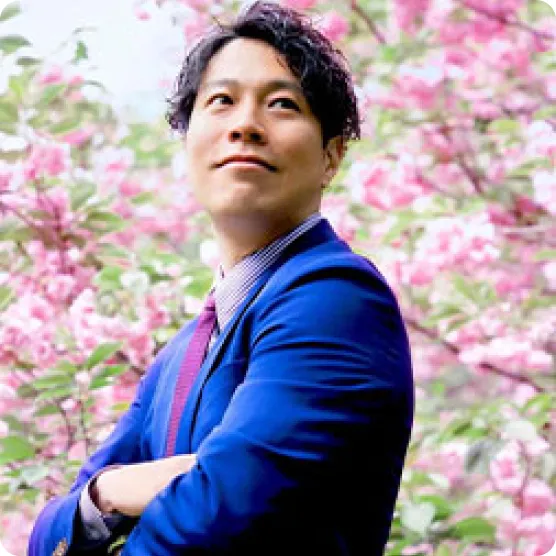
Naoki Sakurai
CWO of S-Works Inc.Coach & Training Instructor
There was a part of me that couldn’t fully commit when taking on various challenges.
I struggled with the paradox that when I approached people solely to gain sales or connections, things often didn’t go well.
Mr. Namekawa gave me advice from a perspective I had never considered before, and it was so shocking that it felt like a blow to the head.
By carefully applying Mr. Namekawa’s teachings in my work, business metrics began to improve, and there were instances where a single promotion generated the equivalent of my entire annual income from the previous year.
I was able to approach clients with a mindset of wholehearted dedication, which allowed me to move beyond simple transactions and develop deeper, more meaningful relationships.
voice
From Mr. Namekawa, I learned not only the important way of being as a businessperson rooted in Teiougaku (the study of leadership) but also practical methods to apply it. He provided insights into profound questions—such as ‘What does work mean to you?’—questions that are often difficult to ask but critical to reflect on. I always gain so much from his teachings.
International Executive CoachViranti Noriko Makino
Mr. Namekawa has an incredible personal charm. It’s rare for a man to admire another man, but there’s no other way to describe it—I was truly captivated by his unique and profound presence. I’ve never met anyone before who made me think, ‘I want to become someone like him.’
K.M.contact
I look forward to the opportunity
to lecture on Gotoku Management
in countries around the world!
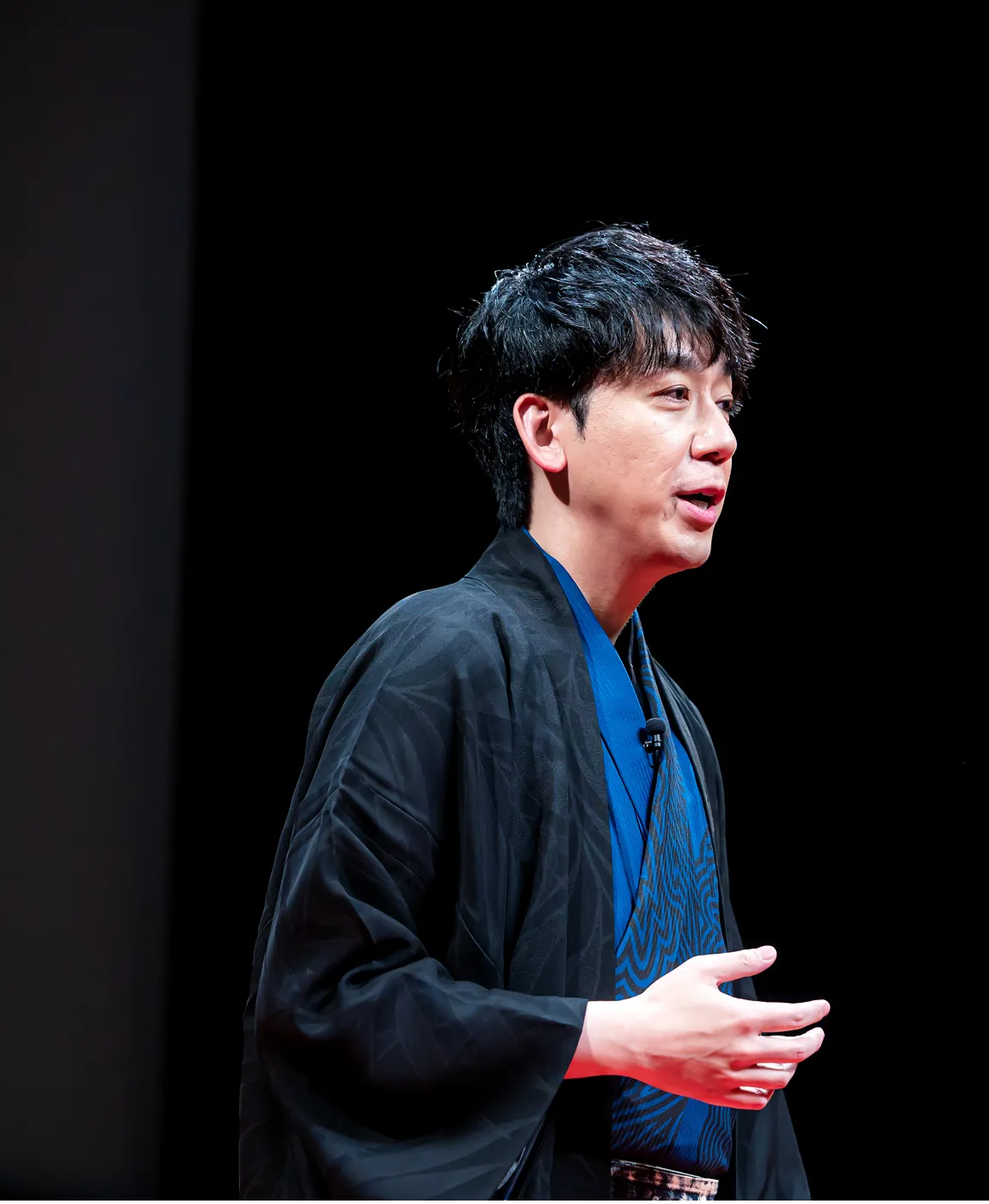
I am accepting requests for lectures on Gotoku Management, focusing on human development, leadership, and organizational management.
Through a practical approach to refine one’s way of being as human, rooted in Gotoku philosophy, I help business leaders integrate morality and economics for sustainable success.
To all corporate executives and business leaders: I invite you to reach out, and together, let us take the first step toward success — both in your business and personal life!